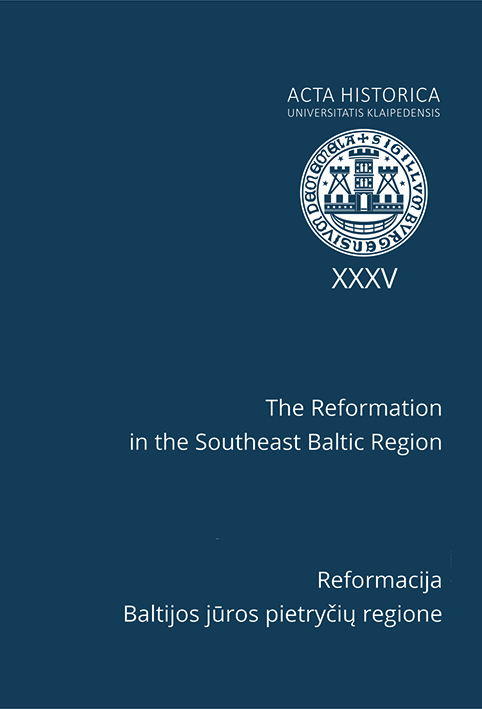Volume 35 (2017): The Reformation in the Southeast Baltic Region = Reformacija Baltijos jūros pietryčių regione, December 2017

Order by:
Pub. online: 15 Dec 2017
Type: Article
 Open Access
Open Access
Journal:
Acta Historica Universitatis Klaipedensis
Volume 35 (2017): The Reformation in the Southeast Baltic Region = Reformacija Baltijos jūros pietryčių regione, pp. 211–228
Abstract
Pub. online: 15 Dec 2017
Type: Article
 Open Access
Open Access
Journal:
Acta Historica Universitatis Klaipedensis
Volume 35 (2017): The Reformation in the Southeast Baltic Region = Reformacija Baltijos jūros pietryčių regione, pp. 229–251
Abstract
Pub. online: 15 Dec 2017
Type: Book Review
 Open Access
Open Access
Journal:
Acta Historica Universitatis Klaipedensis
Volume 35 (2017): The Reformation in the Southeast Baltic Region = Reformacija Baltijos jūros pietryčių regione, pp. 255–261